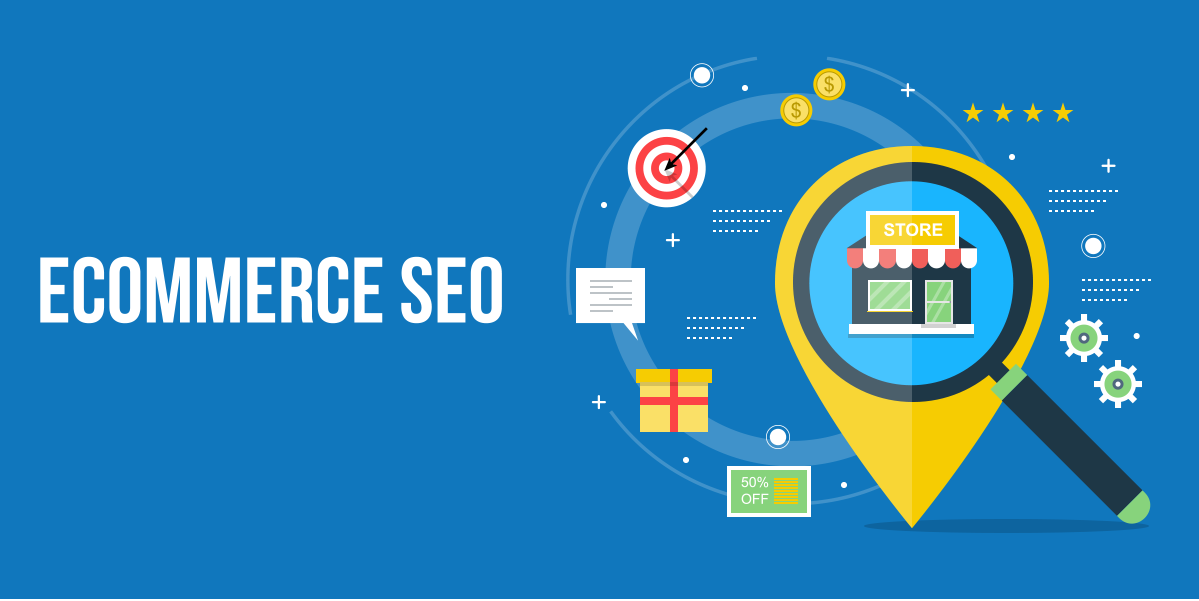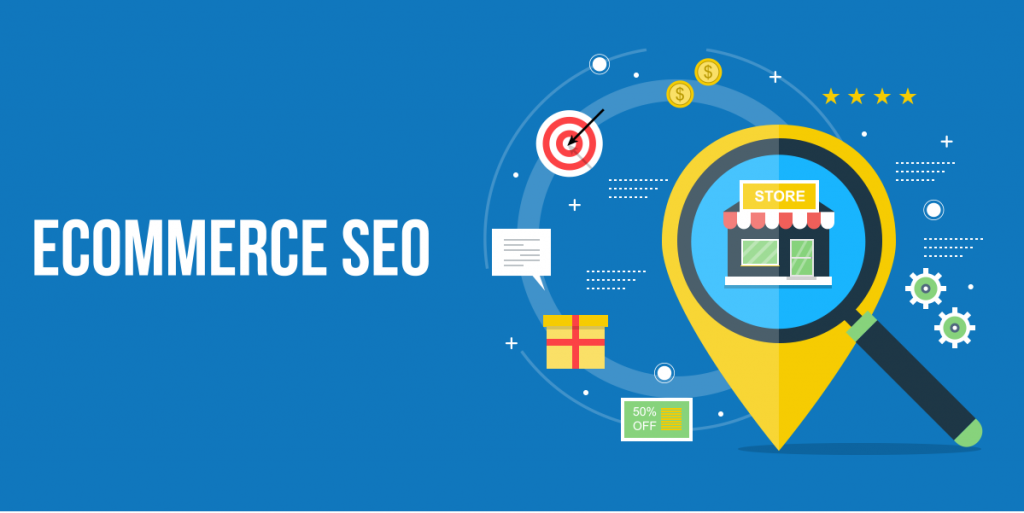Introduction: Embracing the Power of SEO for E-Commerce
In today’s digital age, a strong online presence is paramount for any e-commerce business. With millions of potential customers searching for products and services on search engines like Google, Bing, and Yahoo, having a well-optimized website is no longer a luxury but a necessity. Search Engine Optimization (SEO) is the key to achieving higher visibility, driving organic traffic, and ultimately converting visitors into loyal customers.
In this article, we will explore the world of SEO for e-commerce websites, providing you with a step-by-step guide to enhance your website’s performance, increase conversions, and stay ahead of your competition. From keyword research to on-page optimization, link building, and technical SEO, we will cover it all. So, let’s embark on this SEO journey and unlock the full potential of your e-commerce website.
Table of Contents
| Heading | Subheading |
|---|---|
| 1. Understanding the Importance of SEO | – What is SEO, and why is it crucial for e-commerce websites? |
| – The impact of SEO on organic traffic and sales performance | |
| 2. Keyword Research for E-Commerce Websites | – Uncovering high-converting keywords for your product pages |
| – Utilizing LSI keywords for better search engine visibility | |
| 3. Crafting SEO-Friendly Product Descriptions | – Writing compelling product descriptions that resonate with customers |
| – Leveraging user-generated content to boost SEO rankings | |
4. Optimizing Product Pages |
– On-page SEO techniques for enhanced visibility and user experience |
| – The importance of rich snippets and structured data for e-commerce websites | |
| 5. Link-Building Strategies | – Building high-quality backlinks to increase domain authority |
| – Partnering with influencers and bloggers for brand exposure | |
| 6. Technical SEO for E-Commerce | – Enhancing website speed and performance for better search rankings |
| – Mobile optimization: A critical factor in e-commerce SEO | |
| 7. Content Marketing for E-Commerce | – Creating engaging content to attract and retain customers |
| – Utilizing video marketing and its impact on SEO | |
| 8. Leveraging Social Media for SEO | – Integrating social media strategies to boost SEO rankings |
| – The role of social signals in search engine algorithms | |
| 9. User Experience (UX) and SEO | – Enhancing website navigation and user interface for improved SEO |
| – The importance of responsive design in e-commerce SEO | |
| 10. Analyzing SEO Performance with Tools | – Top SEO tools for e-commerce websites and their functionalities |
| – Interpreting data to make informed SEO decisions | |
| 11. Avoiding Common SEO Mistakes for E-Commerce | – Identifying and rectifying SEO errors that hinder website performance |
| – Tips to avoid Google penalties and maintain a positive SEO ranking | |
| 12. Local SEO for E-Commerce | – Strategies to optimize for local searches and increase foot traffic |
| – Leveraging Google My Business for local SEO success | |
| 13. Competitor Analysis and SEO | – Conducting a comprehensive competitor analysis for strategic insights |
| – Learning from competitors and adapting your SEO approach | |
| 14. The Future of SEO for E-Commerce | – Predictions and trends in SEO that will shape the e-commerce landscape |
SEO for E-Commerce Website: Unveiling the Secrets to Online Success
In this section, we will explore the fundamental aspects of SEO for e-commerce websites, from its definition and importance to the impact it can have on your online business. Let’s dive in!
What is SEO, and why is it crucial for e-commerce websites?
SEO, or Search Engine Optimization, refers to the process of optimizing your website to rank higher in search engine results pages (SERPs) organically. By strategically implementing SEO practices, you can increase your website’s visibility and attract more potential customers who are actively searching for products or services similar to what your e-commerce business offers.
For online stores, SEO is particularly essential as it can directly impact your website’s traffic and, consequently, your sales and revenue. By appearing on the first page of search results, you’re more likely to receive clicks. And visits from users interested in making a purchase, ultimately leading to higher conversion rates.
The impact of SEO on organic traffic and sales performance
SEO can be a game-changer when it comes to driving organic traffic to your e-commerce website. Organic traffic refers to the users who discover your website through non-paid search engine results. This traffic is highly valuable as it represents individuals who have expressed genuine interest in your products or services.
When your website is properly optimized for relevant keywords. Also, search engines recognize its value and rank it higher on their results pages. As a result, you’ll witness a steady flow of targeted visitors, which translates to an increase. Also, opportunities for conversions and higher sales performance.
FAQs
Is SEO essential for e-commerce websites?
Absolutely! In today’s highly competitive digital marketplace, SEO is a critical component for the success of any e-commerce website. It helps improve your online visibility, attract potential customers, and boost your sales and revenue.
What are LSI keywords, and how can they benefit my e-commerce site?
LSI (Latent Semantic Indexing) keywords are semantically related terms that are conceptually linked to your main target keyword. By incorporating LSI keywords into your content, you provide search engines with a clearer context of your page’s subject. Ultimately enhancing your website’s relevance and search visibility.
How can user-generated content impact my SEO rankings?
User-generated content, such as customer reviews and testimonials, can have a significant impact on your SEO rankings. Not only does it add valuable and authentic information to your product pages, but it also increases engagement. And time spent on your website, which are essential factors in SEO algorithms.
What are rich snippets, and why are they essential for e-commerce SEO?
Rich snippets are enhanced search results that provide users with additional information beyond the standard title and meta description. For e-commerce websites, rich snippets can display product prices, ratings, availability, and more. Implementing rich snippets can improve click-through rates and increase organic traffic.
How can social media contribute to my e-commerce website’s SEO?
Social media can play a vital role in your e-commerce SEO strategy. By sharing valuable content, engaging with your audience, and building a strong social presence. You can increase brand awareness, generate backlinks, and signal search engines that your website is authoritative and relevant.
What is local SEO, and why is it important for my e-commerce business?
Local SEO focuses on optimizing your website to rank higher in local search results. For e-commerce businesses with physical locations or a target audience in specific geographic areas. Local SEO can help increase foot traffic to brick-and-mortar stores and boost online sales from local customers.
Conclusion: Unlocking the Potential of SEO for E-Commerce
In conclusion, SEO for e-commerce websites is a powerful tool that can significantly impact your online success. By implementing the right strategies, conducting thorough keyword research, and consistently optimizing your website. You can attract more organic traffic, increase conversions, and outperform your competitors in the digital landscape.
Remember, SEO is an ongoing process, and staying up-to-date with the latest trends. And best practices is essential for maintaining your competitive edge. So, embrace the power of SEO, and watch your e-commerce business soar to new heights in the online marketplace!




